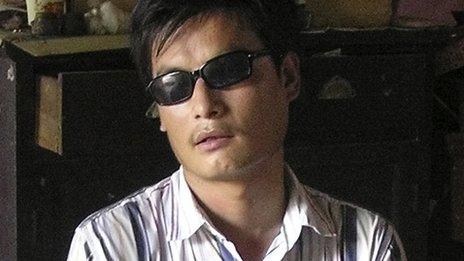Julian Assange row: Ecuador backed by South America
- Published
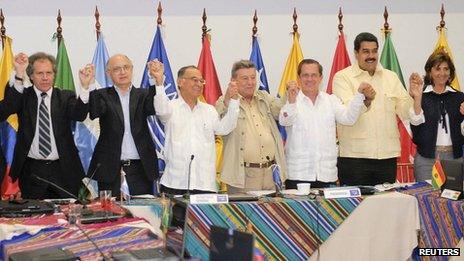
The South American foreign ministers joined hands after agreeing the document
South American nations have pledged support for Ecuador amid claims of UK "threats" after it granted asylum to Wikileaks founder Julian Assange.
The Union of South American Nations said it backed Ecuador after Mr Assange publicly thanked it and other South American countries for their support.
Mr Assange has been at Ecuador's London embassy since June but the UK has said it could lift its diplomatic status.
He faces extradition to Sweden over sexual assault claims, which he denies.
Ecuador's President Rafael Correa has suggested Mr Assange could co-operate with Sweden if assurances are given that there would be no extradition to a third country.
Supporters of Mr Assange - who on Sunday urged the US to end its "witch-hunt" against the Wikileaks site - claim he could face persecution and even the death penalty if sent there.
'Explicit threat'
A document agreed at the Union of South American Nations meeting said it supported the country "in the face of the threat" to its London embassy.
After Ecuador's Foreign Minister Ricardo Patino finished reading the final declaration from the Union of South American Nations (Unasur) summit, he joined hands with his fellow foreign ministers from across South America and raised them aloft.
Mr Assange called for the US government to "renounce its witch hunt against Wikileaks"
The BBC's Will Grant said it was a symbolic but important show of unity in a region which considers the UK government's approach over Mr Assange to have been colonialist and threatening.
Ecuador has described a letter from the British government drawing attention to the Diplomatic and Consular Premises Act 1987, external as "intolerable" and an "explicit threat".
The act could allow the UK to lift the diplomatic status of Ecuador's embassy in London to allow police to enter the building to arrest Mr Assange for breaching his bail terms.
Mr Assange has been at the embassy since 19 June. Five days earlier, the UK's Supreme Court dismissed his bid to reopen an appeal against his extradition to Sweden.
He had been on bail while the case was being considered and, after the Supreme Court result, was given a further two-week grace period.
It is an established international convention that local police and security forces are not permitted to enter an embassy, unless they have the express permission of the ambassador.
That principle was backed by the ministers at the Unasur summit. In their final document, they agreed on a series of general principles, including as "the inviolability of local diplomatic missions and consular offices".
'War on whistle-blowers'
Our correspondent said that - in the context of the UK's perceived heavy-handed approach to the recent question of Argentina's renewed claim over the Falkland Islands - the British government's reputation in South America was undoubtedly being affected by this stand-off.
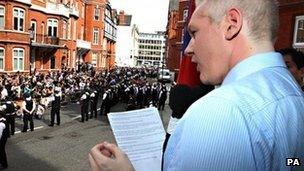
Julian Assange called on the US to stop its "war on whistle-blowers"
But the last point of agreement in the Unasur document called for calm, urging the parties involved to "continue the dialogue and negotiation to find a mutually acceptable solution".
On Sunday, Mr Assange, 41, used his first public statement since entering the embassy - delivered from a balcony - to call on the US to stop its "war on whistle-blowers".
The US is carrying out an investigation into Wikileaks, which has published a mass of leaked diplomatic cables, embarrassing several governments and international businesses.
In 2010, two female Wikileaks supporters accused Mr Assange, an Australian citizen, of committing sexual offences against them while he was in Stockholm to give a lecture.
Mr Assange claims the sex was consensual and the allegations are politically motivated.
- Published20 August 2012
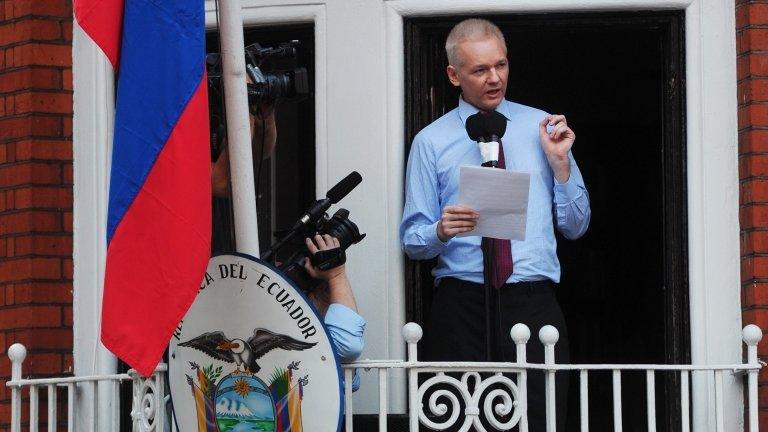
- Published19 August 2012
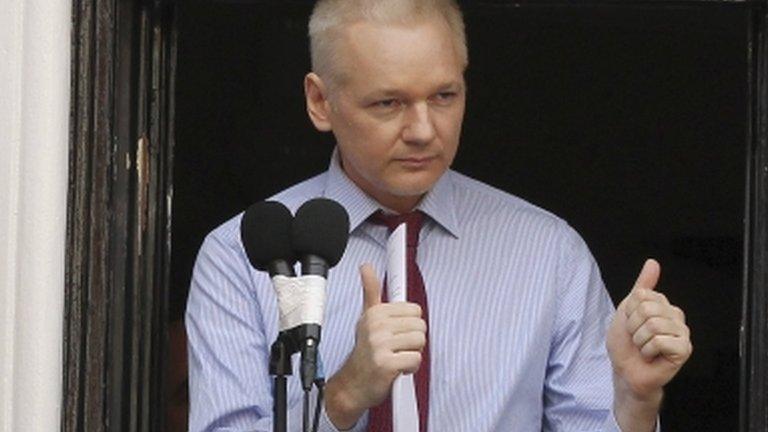
- Published18 August 2012
_afp.jpg)
- Published25 June 2024
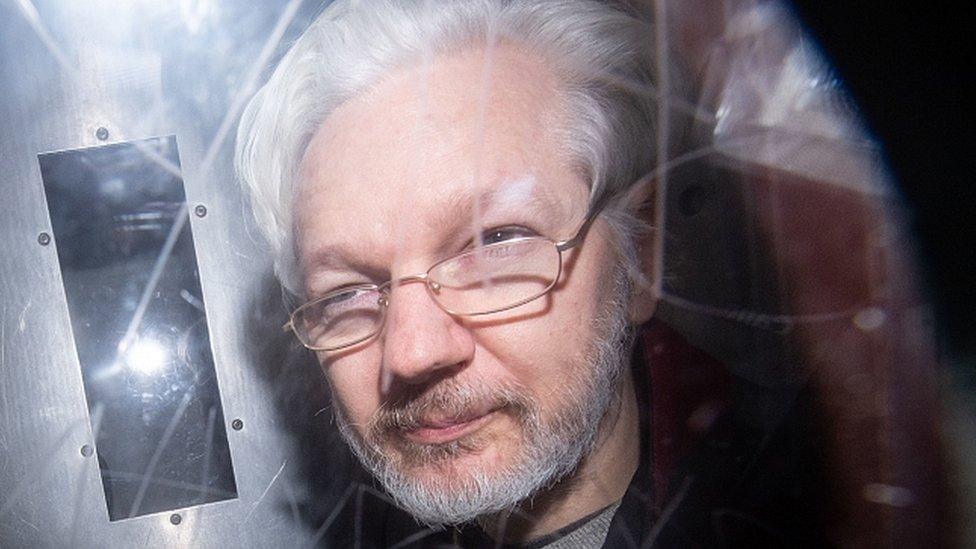
- Published16 August 2012
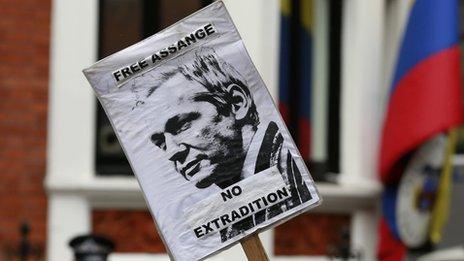
- Published2 May 2012
